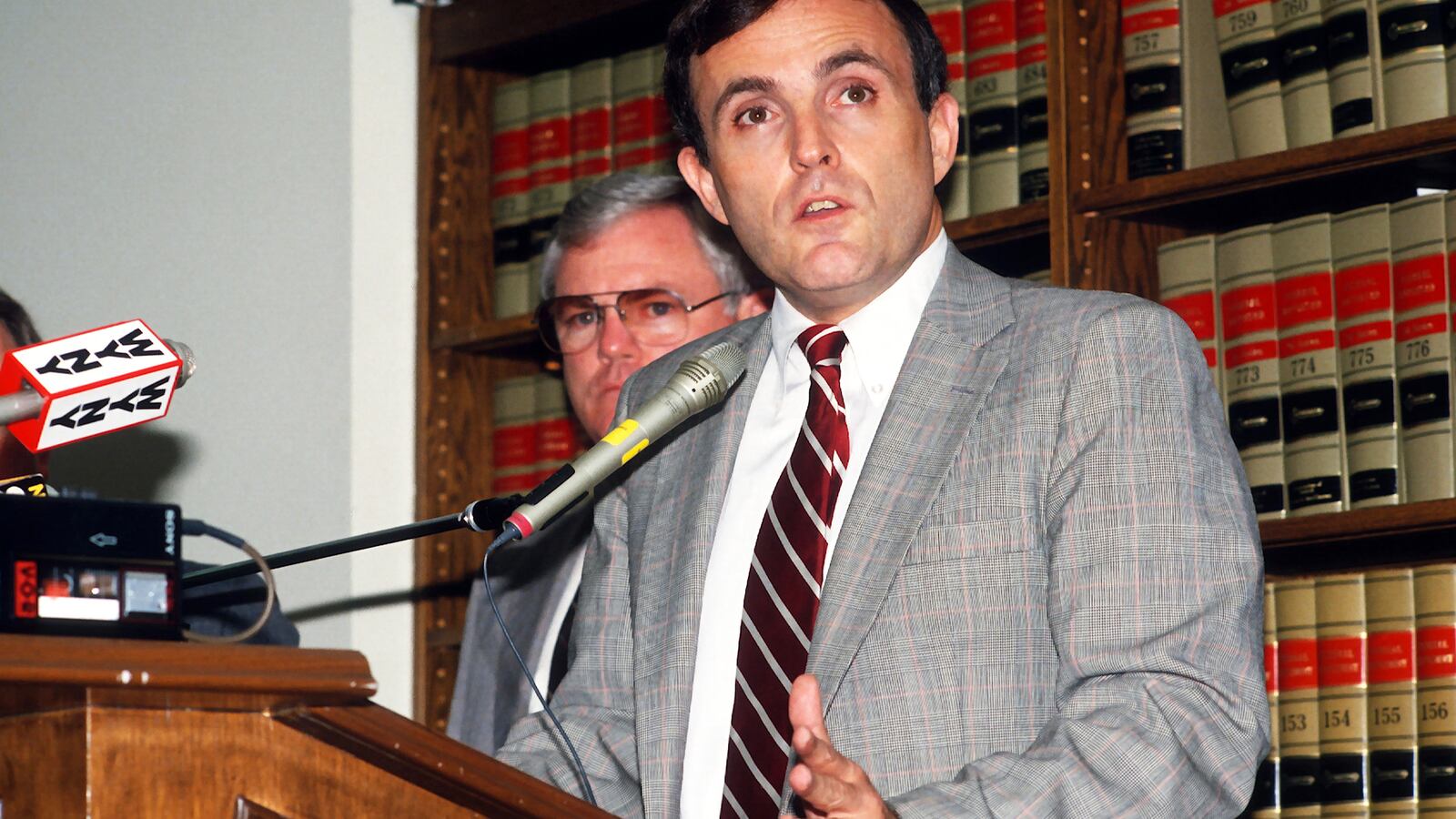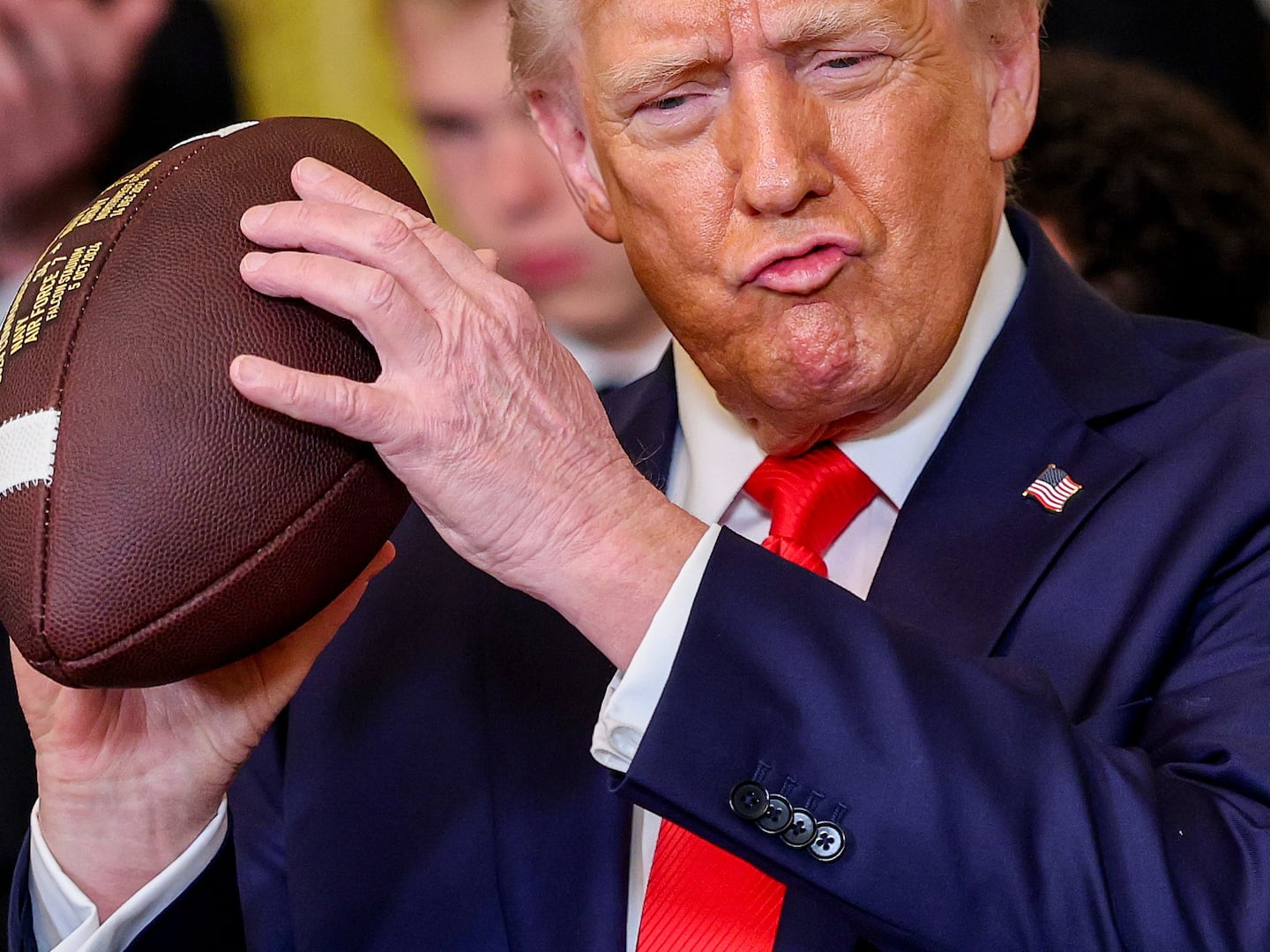As U.S. attorney for the Southern District of New York, Rudy Giuliani happily locked up three Wall Street executives on the unsubstantiated word of a lone informant who was even less reliable than Michael Cohen.
“A witch hunt,” the wife of one of the unjustly accused three termed the 1986 investigation.
The insider-trading charges against two of the three were subsequently dropped. The third, Robert Freeman of Goldman Sachs, finally gave in to threats of heavy prison time and pleaded guilty to mail fraud in an unrelated case.
His wife, Margo Freeman, was the one who described the investigation with the very same words Giuliani now uses to described special counsel Robert Mueller’s investigation into Russian interference in the 2016 presidential election.
The informant in what seems to have really been a witch hunt three decades ago was Martin Siegel, who admitted to selling inside information to financier Ivan Boesky for $700,000. Siegel immediately sought to rat his way out of trouble, accusing Freeman and two others, Richard Wigton and Timothy Tabor, of similar financial misdeeds.
On Feb. 12, 1987, Giuliani dispatched U.S. Marshals and federal agents to the three men’s respective places of work. An arrest team surprised Freeman at his office where he presided as Goldman’s head of arbitrage.
The feds informed Freeman he was under arrest, ordering him to empty his pockets, reading him his Miranda rights, and seizing his Rolodex. A Goldman lawyer convinced the feds to hold off on handcuffing Freeman until he was led outside, but a media mob awaited him at the courthouse. The reporters and photographers and TV news crews had been summoned for a Giuliani press conference that was accompanied by the first Wall Street perp walk.
Another arrest team arrived with Richard Wigton, who had been in tears when he was escorted in handcuffs from his office at Kidder, Peabody & Co., where he was head of risk arbitrage and over-the-counter trading.
Timothy Tabor might have suffered the same treatment, but he had recently left Kidder Peabody to take a job as head of arbitrage at Merrill Lynch. The feds only caught up with him at home after court hours and he remained in custody until he could be brought before a judge the next morning.
Giuliani’s obvious intent was to give the three executives such a scare that they would immediately admit their guilt. They might have if they had in fact been guilty. They retained the resilience of the innocent.
The accompanying problem for Giuliani was that he had no evidence to corroborate the informant’s word that these three had also been involved in insider trading. The charges against Wigton and Tabor were dropped.
But Giuliani was not ready to admit total defeat, and threatened Freeman with racketeering charges under the same RICO statute that had been used against the Mafia. That 1970 law provides greatly increased penalties for offenses committed as part of an ongoing criminal enterprise. Freeman risked long years in prison if he challenged the prosecution and lost. He had already been charged with something he did not do. What could guarantee he would not also be convicted? He finally agreed to plead guilty to a relatively minor charge unrelated to the original case.
Freeman was sentenced to four months. That was double the two-month sentence that the informant Siegel received for actual insider trading.
Lest anybody think Giuliani learned a lesson as he neared the end of his tenure as U.S. attorney, he authorized the arrest in 1988 of another Wall Street figure based on a lone, uncorroborated informant.
John Mulheren was prosecuted and actually convicted, but the verdict was thrown out on appeal. The Court of Appeals for the Second Circuit suggested that the case should have never been brought in the first place.
“We are convinced that no rational trier of fact could have found the elements of the crimes charged here beyond a reasonable doubt,” the court found.
The court cited an earlier case where it had noted, “in America we still respect the dignity of the individual, and [a defendant]... is not to be imprisoned except on definite proof of a specific crime.”
Mulheren was vindicated, but the stress may have contributed to his early death, in 2003, at the age of 54. His pal Bruce Springsteen played at the funeral, where mourners attested to his many acts of philanthropy, which included an annual visit to the Bowery, where he handed out cash to the homeless.
By then, Freeman had been widely recognized as having been unjustly accused.
Giuliani had long since stepped down as U.S. attorney to run for mayor on the power of his fame as a lawman. He lost to David Dinkins, but ran against him again four years later and won.
After 9/11, Giuliani became known as “America’s mayor.” He wanted to become America’s Statesman when Donald Trump was elected, but that was not to be. Giuliani has now become the president’s new fixer.
The former fixer, Michael Cohen, is indicating that he is ready to tell whatever he knows. And Trump should be thankful Mueller is not the kind of prosecutor who hurries to bring changes on the uncorroborated word of a single informant, as Giuliani did when he initiated what really were witch hunts.
Meanwhile, Mueller keeps working in the deliberate and careful way of a prosecutor who is hunting for only the truth, wherever that may lead. Whatever anybody might say about him.






